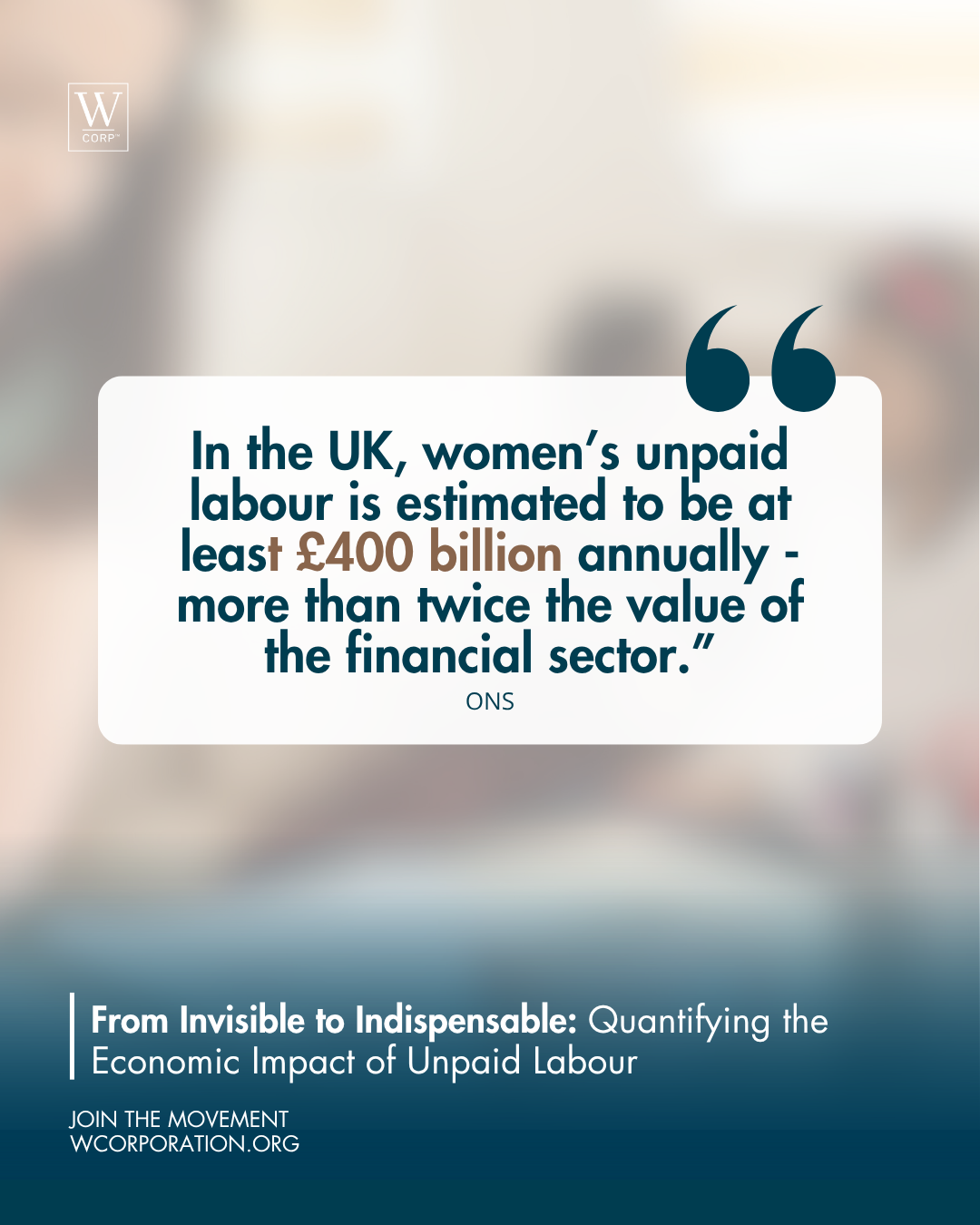From Invisible to Indispensable: Quantifying the Economic Impact of Unpaid Labour
Jul 11, 2025
Unpaid labour - primarily undertaken by women - forms the backbone of economies worldwide, yet it remains largely invisible in economic metrics like GDP. Tasks such as childcare, eldercare, cooking, and cleaning are essential for societal functioning but are often unrecognised and uncompensated. This systemic oversight not only undervalues women's contributions but also perpetuates gender inequality.
The Hidden Workforce Powering the Economy
Globally, women perform approximately 2.5 times more unpaid care and domestic work than men, amounting to nearly 90 billion hours each week. This labour is excluded from GDP calculations, despite its critical role in sustaining economies. (Oxfam)
In the UK, the value of women's unpaid labour is estimated at £700 billion annually, surpassing the financial sector's contribution of £132 billion (The I Paper). Young women aged 18 to 30 contribute at least £140 billion through unpaid work, highlighting the significant economic impact of these often-overlooked tasks. (Young Womens Trust)

The Cost of Care: A Barrier to Women's Economic Participation
Unpaid care responsibilities significantly hinder women's participation in the labour market. An estimated 708 million women worldwide are outside the labour force due to these responsibilities, compared to 40 million men. This disparity underscores the gendered nature of unpaid labour and its role in limiting women's economic opportunities (UN).
In the UK, women perform an average of 26 hours of unpaid work per week, compared to 16 hours by men. This imbalance contributes to the persistent gender pay gap and restricts women's career advancement (Office for National Statistics.
Economic Implications of Unpaid Labour
The exclusion of unpaid work from economic indicators like GDP leads to a distorted understanding of economic productivity and growth. If women's unpaid care work were compensated, it could add up to $10 trillion to the global economy. Moreover, achieving gender parity in the labour force could boost global GDP by $28 trillion by 2025 (Time
In the UK, women lose out on £126 billion annually due to unpaid labour, nearly half the total paid to female employees. This loss not only affects individual women but also represents a significant economic inefficiency (The Independent).

The Path Forward: Recognizing and Valuing Unpaid Work
Addressing the economic impact of unpaid labour requires systemic change:
- Invest in Care Infrastructure: Expand access to affordable childcare and eldercare services to alleviate the burden on unpaid caregivers.
- Promote Flexible Work Arrangements: Encourage policies that support work-life balance, enabling more equitable distribution of unpaid responsibilities.
- Challenge Gender Norms: Implement educational campaigns to shift societal perceptions about gender roles in caregiving and domestic work (The Guardian)
By recognizing and validating unpaid labour, societies can move towards greater gender equality and unlock significant economic potential.





